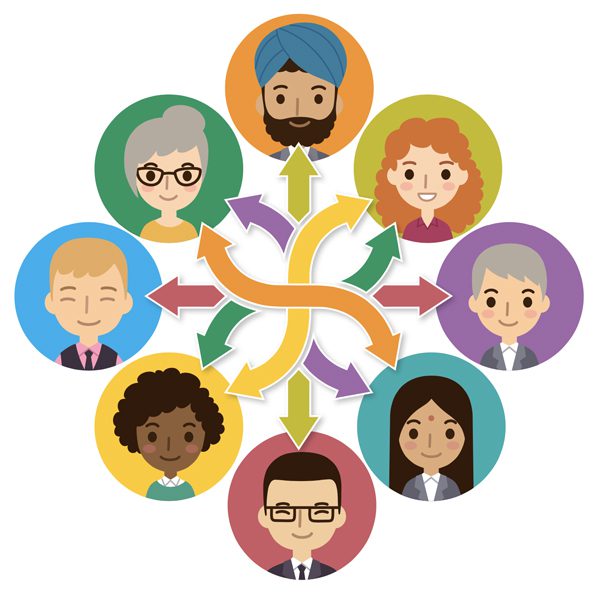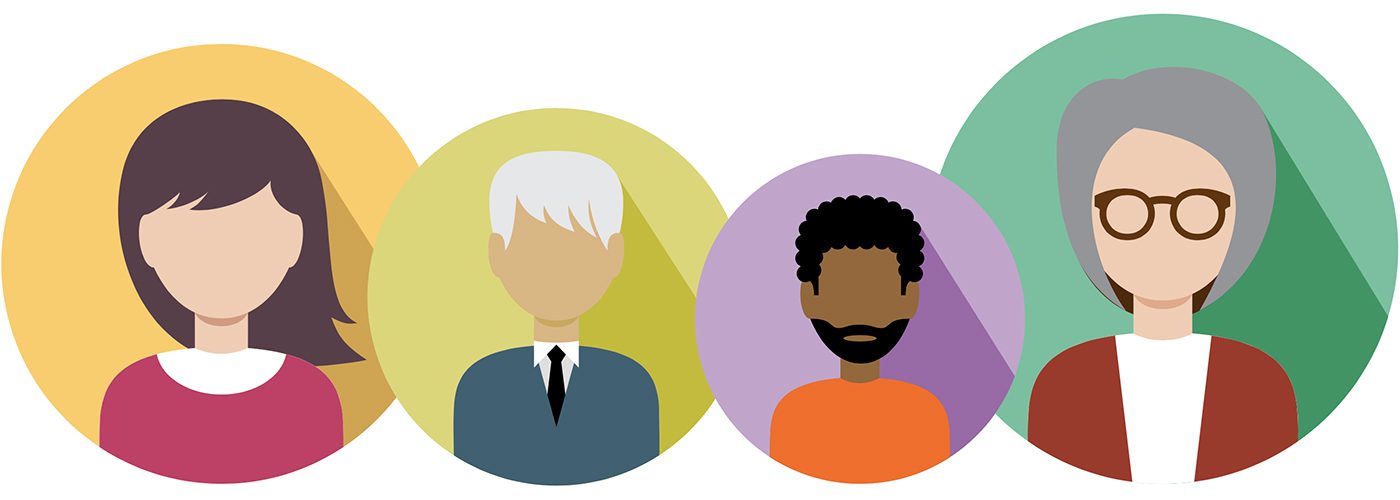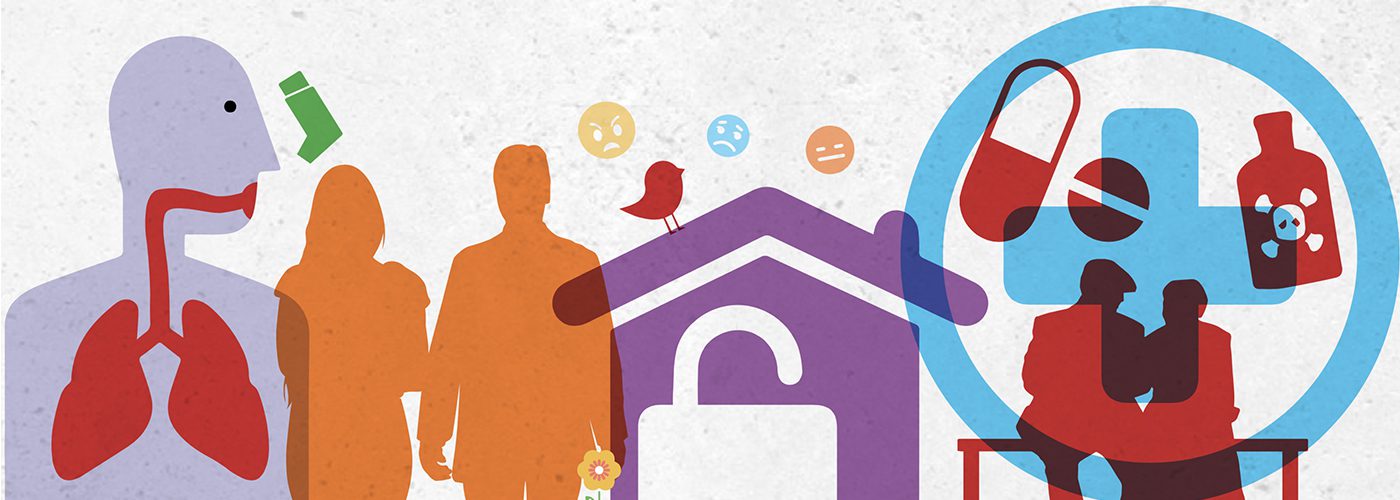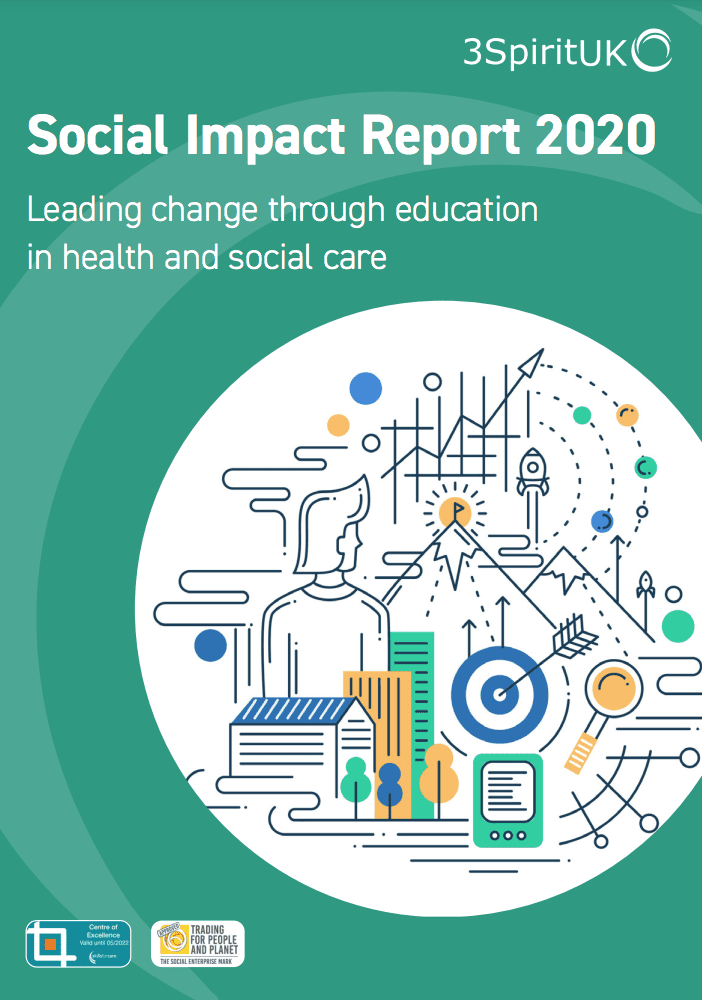Social Impact Report
Leading change through education in health and social care
Working across multiple boundaries has provided a unique insight to the challenges and opportunities during this transformational period.
We listened actively to a range of stakeholders and adapted incrementally in response to a rapidly changing market. Some of the more emergent programmes developed this year have included:
- Safeguarding throughout the COVID-19 pandemic
- Delivering Virtual Assessments
- Supporting Staff Wellbeing
- Loss and Bereavement during the COVID-19 Pandemic
- End of Life and COVID-19
- Remote Working in Your Own Home During the COVID-19 Pandemic
- Mental Capacity and Vaccinations
- Advanced Infection Control and Vaccinations
- Rapid Recruitment
- Digital Transformation Strategies
- Discharge to Assess
- Business Transitions during the COVID-19 Pandemic
Our Tier 3 Impact Assessments

This data is collected cumulatively over the life of the programme and is self-reported. Not all individuals attending the programmes complete the impact assessment. In addition a number of factors influence the transfer of knowledge to practice. Therefore, this data should be treated with caution, and is only representative of the impact of learning interventions.
Our impact questionnaire asks what has hindered impact in organisations and this data can be usefully provided to our clients. We recognise that this has been an extraordinary year and where there has been limited or no impact this may be as a result of restricted roles (as a consequence of social distancing).
All impact work is independently funded by 3SpiritUK
Advanced Care Planning Training (Direct Support Practitioners)
Which of the following activities did you deliver/improve upon because of the course?
Provide appropriate and timely advice to individual and families about legal provisions related to advance care planning.x | 79% |
Carry out timely conversations in advance care planning. | 50% |
Share information appropriately, adhering to GDPR and safeguarding guidelines. | 36% |
Advanced Care Planning Training (Social Work and Allied Professionals)
Which of the following activities did you deliver/improve upon because of the course?
Provide appropriate and timely advice to individual and families about legal provisions related to advance care planning.
| 33% |
Carry out timely conversations in advance care planning. | 67% |
Share information appropriately, adhering to GDPR and safeguarding guidelines.
| 50% |
Have undertaken/referred to a mental capacity assessment where required ahead of advance care plan. | 17% |
Record advance care planning decisions confidently.
| 17% |
Communication and Dementia Training
Which of the following activities did you deliver/improve upon because of the course?
Have reported and/or recorded on changes to communication abilities.
| 33% |
Have reported and/or recorded identified communication barriers.
| 22% |
Have made changes to social environment to improve communication e.g. adapting to & working with different realities.
| 44% |
Have adjusted & amended structure & pace of communication with someone living with dementia
| 44% |
Reframed challenging behaviour as method of communication, enabling different response.
| 22% |
Have drawn on life history to understand behaviour in context.
| 33% |
Have included people more in conversations.
| 44% |
Listened more mindfully to what people are saying.
| 56% |
Dementia and Environment Training
Which of the following activities did you deliver/improve upon because of the course?
Raising awareness of the impact of the environment on the person with dementia and support tasks.
| 83% |
Making changes to the environment to support sensory needs.
| 40% |
Making changes to improve familiarity and support identity.
| 43% |
Making changes to the environment so that the person can participate.
| 37% |
Making changes to improve way-finding.
| 27% |
Making changes to the environment to support nutrition.
| 37% |
Making changes to the environment to support sleep.
| 20% |
Providing more access to the outdoors.
| 13% |
Discussing in own team the possible use of assistive technology.
| 43% |
Dementia Risk Reduction Training
Which of the following activities did you deliver/improve upon because of the course?
Raise awareness of risk reduction in own team.
| 67% |
Access tools to identify risk factors.
| 24% |
Put in place strategies to monitor factors impacting on risk e.g. diabetes, depression, loneliness and hearing loss.
| 33% |
Supported someone through diagnosis.
| 5% |
Provide information to person with dementia and/or family support available post diagnosis.
| 14% |
Enquiry Officer Training
Which of the following activities did you deliver/improve upon because of the course?
Have confidently applied the legislation and policy that underpins adult safeguarding.
| 92% |
Have confidently undertaken the 4 stages of Safeguarding.
| 75% |
Have been able to support the process of MSP particularly in complex cases.
| 42% |
Have accessed advocacy support with positive outcomes.
| 67% |
Have been able to confidently apply best practice in enquiry interviews.
| 50% |
Have been able to critically analyse and evaluate information obtained in the enquiry.
| 75% |
Have been able to produce a robust defensible enquiry report.
| 58% |
Have been able to develop productive relationships with adults, (and others) to produce multi agency safeguarding protection plans.
| 58% |
Have been able to work with an adult to aid recovery and build resilience.
| 33% |
Exploitation Training for Adult Social Care Staff
Which of the following activities did you deliver/improve upon because of the course?
Have been able to proactively identify those at risk of sexual exploitation.
| 57% |
Have confidently applied the legislation and policy to safeguarding those at risk of sexual exploitation.
| 57% |
Have applied the legislative framework for children and adults in regards to young people in transition.
| 29% |
Have been able to support the process of MSP considering supporting self-determination and risk enablement whilst responding to young person’s agency and victimisation simultaneously.
| 72% |
Have confidently applied trauma informed practice.
| 29% |
Have confidently worked within the principles of the Mental Capacity Act taking into account how coercion and control impacts on a person’s agency.
| 71% |
Have been able to confidently carry out contextual safeguarding with positive outcomes.
| 43% |
Have considered the use of disruption strategies in context of multi-disciplinary team.
| 14% |
Have been able to discuss/promote positive approaches to transitions with relevant stakeholders.
| 29% |
Have worked with relevant agencies to achieve positive outcomes for individual at risk of sexual exploitation.
| 14% |
Have confidently made a referral to National Referral Mechanism (NRM).
| 14% |
Have been able to use learning from SAR on sexual exploitation to improve practice.
| 29% |

Health and Wellbeing in Dementia
Which of the following activities did you deliver/improve upon because of the course?
Support a person to achieve one, or more, of the five ways to wellbeing: give, connect, keep learning, and take notice.
| 54% |
Raise awareness of potential impact loneliness.
| 63% |
Use an assessment to identify if a person is lonely.
| 13% |
Adopt strategies to address loneliness.
| 42% |
Adopt strategies to support sleep.
| 21% |
Raise awareness of the importance of exercise.
| 58% |
Identify ways to support a person to exercise.
| 46% |
Report early signs of delirium.
| 38% |
Use the STOP and WATCH tool to identify early signs of delirium.
| 29% |
Report potential dehydration and malnutrition concerns.
| 46% |
Promote healthy eating and hydration.
| 58% |
Adapt the physical and social environment to improve nutrition and hydration.
| 29% |
Raise awareness of the potential impact of incontinence upon a person.
| 21% |
Adapt the environment to promote continence.
| 15% |
Take action to reduce the risk of falls in the workplace.
| 16% |
Modify the physical and/or social environment to support ADL’s.
| 17% |
Introduction to ASC (Autism) Training
Which of the following activities did you deliver/improve upon because of the course?
Identify and report on where someone exhibits ASC traits.
| 37% |
Adapt communication skills to foster greater engagement for those with ASC.
| 78% |
Refer to the correct referral route for diagnosis.
| 22% |
Support someone with the process of diagnosis.
| 20% |
Identify and report on conditions co-morbid with autism.
| 24% |
Have developed a bespoke portable crisis tool kit.
| 17% |
Developed information leaflet.
| 2% |
MCA Training
Which of the following activities did you deliver/improve upon because of the course?
Have been able to recall the five MCA principles.
| 60% |
Have been able to identify where Best Interest applies.
| 83% |
Have carried out supported decision making.
| 50% |
Have advocated in team meetings for clients’ rights.
| 31% |
Have recorded consent to care and treatment in daily records.
| 21% |
Have reported and/or challenged where someone’s rights have been overridden.
| 31% |
“The first session included a lady living with Dementia. She talked about her
experiences of how it is affecting her life and really made me re-evaluate
myself with regards to how I treat people living with Dementia. I can honestly
say that I now view people living with Dementia in a different way and as a
result of this I have completely changed how I communicate and treat them.”– 3SpiritUK Customer, 2021.
Mental Health and Dementia Training
Which of the following activities did you deliver/improve upon because of the course?
Have identified and acted when someone is in ill-being.
| 21% |
Identified, reported and recorded mental health concerns.
| 29% |
Have identified the difference between apathy and hypo delirium.
| 14% |
Identified co-morbid conditions that are impacting on well-being.
| 14% |
Have put in strategies to minimise the impact of depression on supporting activities of daily living.
| 14% |
Have used a tool to assess well-being.
| 0% |
Have supported cognitive loss to enable a person to be more resilient.
| 14% |
Have worked in a more inclusive and targeted way with people to offer ‘therapeutic’ approaches to tackling mental health concerns.
| 64% |
Risk Assessment and Complex Cases
Which of the following activities did you deliver/improve upon because of the course?
Deliver strength-based risk assessments.
| 60% |
Utilise risk assessment more effectively as part of the safeguarding strategy.
| 50% |
Confidently record reasonable, proportionate, accountable defensible decisions.
| 70% |
Handle conflict around risk assessments more confidently.
| 40% |
Safeguarding Adult Manager (SAM) Training
Which of the following activities did you deliver/improve upon because of the course?
Have applied Law Policy and Procedure in Role as SAM confidently.
| 78% |
Have shared information timely and appropriately, particularly in the context of contesting stakeholders.
| 67% |
Have supported an enquirer in working with risks including drawing on strategies like ‘Signs of Safety’.
| 56% |
Have confidently supported the enquiry officer to work with the complexities of enquiries e.g. the MCA 2005, Consent, unwise decisions, duty of Care.
| 78% |
Have been able to apply defensible decision making skills confidently.
| 78% |
Have supported an enquiry officer to co-ordinate, scope and plan the enquiry within appropriate timescales.
| 67% |
Have provided a critical overview of the enquirers report and analysis of the enquiry findings.
| 67% |
Have supported the delivery of a robust protection plan that meets the adult’s priorities is drafted.
| 56% |
Have confidently chaired complex safeguarding meetings.
| 67% |
Have worked to ensure an effective protection plan that meets the adult’s priorities is agreed.
| 78% |
Have been able to confidently provide feedback in a safe and constructive way.
| 78% |
Have been able to manage differences of opinion constructively and to identify when escalation is required.
| 56% |

SBA Level 1
Which of the following activities did you deliver/improve upon because of the course?
Have used techniques to support strength-based conversations.
| 29% |
Been able to identify and maximise a person’s strengths and assets.
| 86% |
Been able to review and update risks assessments dynamically.
| 0% |
Confidently gain and record consent to care and treatment.
| 29% |
Tier 2 Dementia Training
Which of the following activities did you deliver/improve upon because of the course?
Been able to easily differentiate a symptom of dementia from delirium and depression.
| 43% |
Identified if a person is lonely and acted on this (this might mean making a referral for befriending service/ telephone support or engaging more with the person.
| 63% |
Been able to reflect on own experiences of dementia and adapt behaviour as a result.
| 100% |
Made changes to the environment to improve inclusion / independence.
| 56% |
Been able to use skills to de-escalate where a person is experiencing distress.
| 50% |
Been able to use a broader range of communication skills to engage a person with dementia.
| 56% |
Been able to recognise where co-morbidities interact with dementia and adapt approach accordingly.
| 56% |
Been able to use new skills to work in partnership with families.
| 31% |
- To reduce stigma and inequality
- Improve connections between people that might be at risk of exclusion
- To champion human rights
- To reduce excess disability and to promote independence
Our Social Inputs (how we go about achieving our goals)
- Collaborating broadly across a range of stakeholders to develop new knowledge
- Providing education to the health and social care workforce, and directly to vulnerable groups
- Providing services, tools and/or consultancy to organisations to improve the impact of their work and to create efficiencies that improve wellbeing
- Sharing our educational resources
- Promoting the role of the social care sector We aspire to support the United Nations World Sustainable Development Goals, our focus being health and wellbeing, improving quality education, reducing inequalities and promoting peace and justice which we aim to achieve through several strands of our work.


